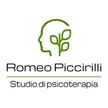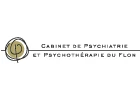Support for motor skills and developmental disorders in children and adolescentsOccupational therapy for children and adolescents plays a crucial role in promoting and developing various motor and cognitive skills. Occupational therapy offers targeted support and interventions, especially for children with developmental disorders such as autism spectrum disorder (ASD), attention deficit disorder (ADD/ADHD), and other behavioral disorders. In this article, you will learn more about the importance of occupational therapy for children and adolescents and the various approaches used to promote gross and fine motor skills and sensory integration. Gross motor Gross motor skills encompass the large movements of the body, such as running, jumping, and climbing. Children with developmental disorders often experience delays or impairments in gross motor skills. Occupational therapists work with specific exercises and activities to improve and strengthen these skills. The goal is to promote balance, coordination, and muscle strength so that children can better cope with everyday life. Fine motor skills Fine motor skills refer to the smaller, more precise movements required for tasks such as writing, painting, and using cutlery. Children with fine motor skills problems may have difficulty holding a pen or buttoning their clothes. Occupational therapists use targeted exercises to promote hand-eye coordination and dexterity. Developmental disorders and occupational therapy F82 and autism spectrum disorder (ASD) Children with F82 (pervasive developmental disorders) and autism spectrum disorder often require special therapeutic approaches. Occupational therapy can help develop social skills, communication skills, and sensory integration skills. Playful activities encourage children to become more aware of their environment and interact with it. ADD and ADHD Attention deficit disorder (ADD) and attention deficit hyperactivity disorder (ADHD) affect children's ability to concentrate and control their impulses. Occupational therapy offers support by structuring everyday life, providing targeted exercises to increase attention and techniques to improve impulse control. Behavioral disorders and learning disorders Behavioral disorders Children and adolescents with behavioral disorders such as aggressive behavior or social isolation benefit from occupational therapy by learning to regulate their emotions and improve social interactions. Creative and playful methods are used to promote positive behaviors. Learning disorders: dyscalculia, reading difficulties, dyslexia Learning disorders such as dyscalculia (mathematical disorder), reading difficulties, and dyslexia (reading and spelling difficulties) can significantly impair a child's school and social life. Occupational therapists work closely with children to develop strategies that facilitate learning and improve academic performance. Sensory integration therapy (SI) Sensory abnormalities Children with sensory abnormalities have difficulty processing stimuli from their environment appropriately. This can lead to hypersensitivity or hyposensitivity to certain stimuli. Sensory integration therapy aims to improve the child's ability to process and integrate sensory information correctly. Sensory activities Occupational therapists use a variety of sensory activities to improve sensory processing. These activities can include swinging, climbing, playing with different textures, or listening to soothing sounds. The goal is to regulate the child's nervous system and achieve better adaptability to various environmental influences. Specialized counseling and interventions Left-handed counseling Children who are left-handed often need specific support to develop their fine motor skills and work ergonomically. Occupational therapists offer targeted counseling and exercises to improve writing posture and make everyday life easier. Impulse control and action planning Children with impulse control disorders have difficulty planning and controlling their actions. Occupational therapy helps improve action planning and impulse control through structured activities and games. This can be achieved through role-playing, cognitive exercises, and the promotion of problem-solving skills. Conclusion Occupational therapy for children and adolescents is a valuable tool for treating a variety of developmental and behavioral disorders. Through targeted exercises and therapeutic approaches, gross and fine motor skills, sensory integration, and cognitive and social skills can be improved. Children with autism spectrum disorder, ADD/ADHD, learning disabilities, and other abnormalities benefit significantly.















